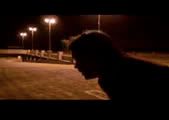Luminous wrote:Just to re-emphasize I'll quote again:
Violence is the last refuge of the incompetent.
-Isaac Asimov
Yes, violence exists. Yes people use guns, and kill other people. And I chose not to invite this into my home as entertainment. Frankly, I just don't find it entertaining.
There are other, more intelligent solutions to having your life threatened, or protecting your property and people you love, and I for one, am far more interested in seeing these intelligent solutions played out. It makes for a much more interesting story. Guns provide lazy, cheap thrills. They get our adrenaline rushing, and that's about it.
This, I do have to take issue with.
Violence is, in political science terms, the far end of the spectrum when diplomacy breaks down in a conflict of interest.
As a filmmaker - and I know you weren't talking about this, but I do need to bring it up- the use of a gun is not a "cheap thrill." It's a logistical nightmare just to create one shot and one hit.
As with all things, moderation is the key. The use of violence is needed to show that it is there, that Damocles' Sword hanging over everyone's head. Bree's Dad being killed was the "start," essentially, of the LG15/Order story. Up until then, it was just Bree, Daniel and Jonas running away from a scary little Cult.
The kill is what brought it home and added weight to the entire story. Now when you see a member of the Order, you
know that they are more than willing to cause damage to you and yours if that is what is required. No amount of posturing will ever do that, no matter how creative you get with it.
To consider violence a cheap thrill would be to say the same of pretty much, uh,
everything Martin Scorsese has done. Out of all of them,
The Departed is easily the most "mainstream," and it's an Oscar winner. (Arguing the merits of an Academy Award is for another time, but the point stands.)
There are
plenty of more "intelligent solutions" to violence, if everything went to the most intelligent route possible, we would not have drama. And at the core of drama is
diminished capacity, wherein characters do what is irrational due to a defect in their thinking. Whether it be biological, social or emotional pressure, they do this because they are human.
All of Shakespeare's works, all of the greatest Greek tragedies, all utilize violence as a distinct force. The death of Mercutio marks the biggest turn-around in a play. People don't get that the first half of Romeo and Juliet was effectively a comedy in those days; people were
laughing and having a great time until that kill. And it shifted into one of the greatest tragic romance stories that we know.
Without that violence - and not to forget the
wealth of violence that followed - could it have happened? I think not.
How about Oedipus Rex? Killed his own father, married his mother. Had he just banished his father, beaten him in checkers, would it have the same impact? No. How does that make it a cheap thrill?
I mean, I get that Quentin Tarantino ain't your thing, but that Asimov quote has to do with
real violence, and
real people. That sort of thing just
does not apply when you're making drama.




